Suan Dusit University (SDU) actively initiates and perticipates in cross-sectoral partnerships and multi-stakeholder engagement to advance the Sustainable Development Goals (SDGs). The university places a strong emphasis on fostering open policy dialogue, knowledge exchange, and collaborative action among government agencies, private sectors, non-governmental organizations (NGOs), and academic institutions—both nationally and internationally. Through these engagements, SDU aims to contribute to evidence-based policy development and to strengthen the integration of sustainability principles across diverse sectors in alignment with the UN SDG framework.
In 2024, Suan Dusit University initiated and participated in multiple forums designed to encourage cross-sectoral dialogue and cooperation for sustainable development. These platforms reflected the university’s role as an academic and policy dialogue facilitator, where various sectors came together to share knowledge, align strategies, and co-develop sustainable practices. Two major cases clearly demonstrate this cross-sectoral engagement in action.
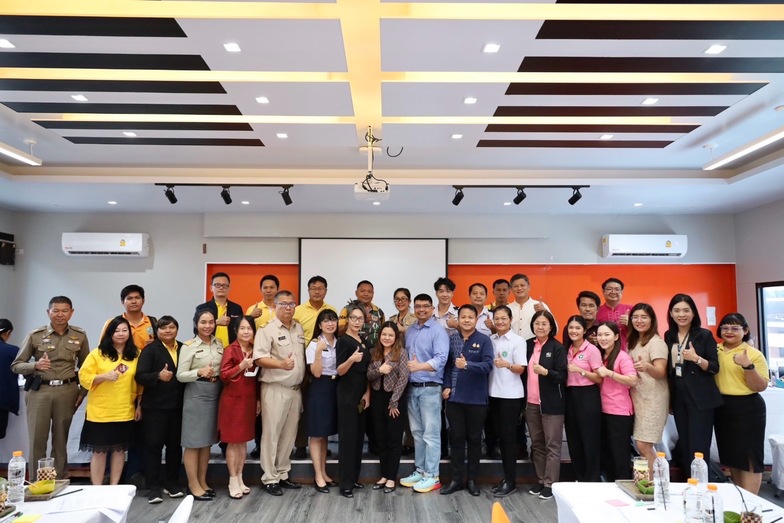
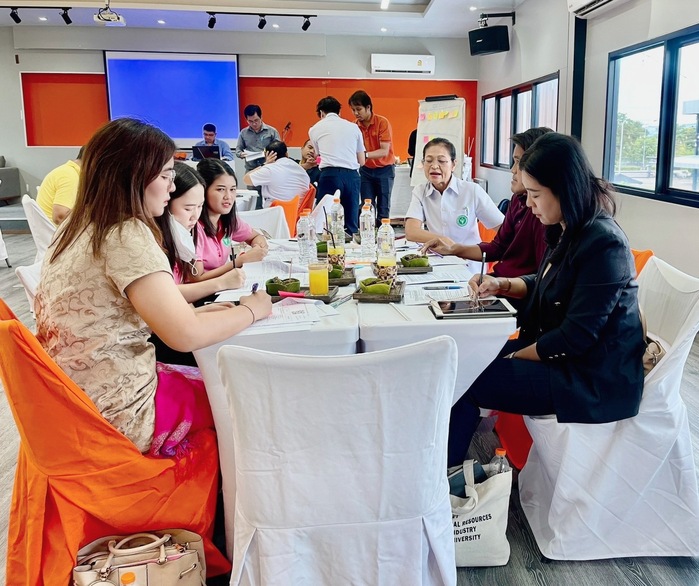
The first case highlights the participation of Suan Dusit University, Suphanburi Campus, in the Workshop on Strategic Planning for the Development of the U-Thong Ancient City and Its Connected Areas as a Special Zone for Sustainable Tourism (2023–2030), held on 23 July 2024 at the Office of the U-Thong Ancient City Special Zone for Sustainable Tourism, Suphanburi Province. The campus director attended the workshop along with provincial government officials and local agencies. The dialogue focused on defining the project framework and implementation strategies for sustainable tourism development under the provincial strategic plan.
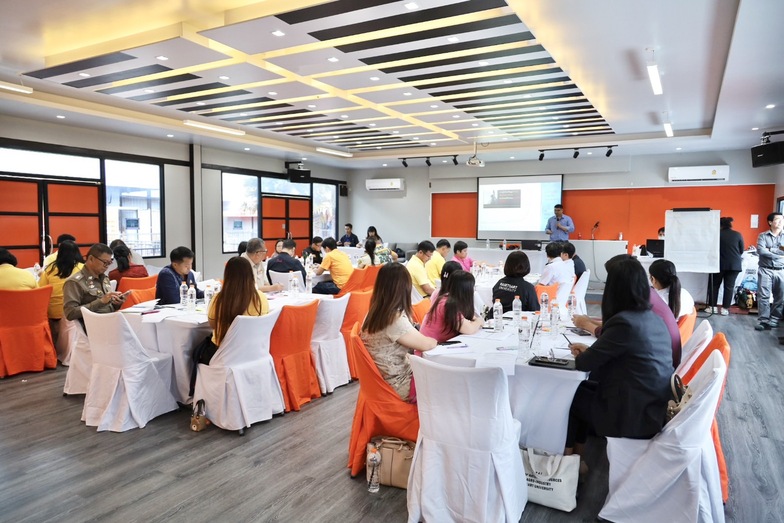
This meeting served as a genuine cross-sectoral dialogue platform, integrating the perspectives of regional government, academia, and local communities. SDU’s participation contributed to the development of project ideas and sustainable management approaches under the concept of Knowledge–Policy Integration. The workshop directly supported the achievement of SDG 8 (Decent Work and Economic Growth), SDG 11 (Sustainable Cities and Communities), and SDG 17 (Partnerships for the Goals) by promoting collaborative governance in regional tourism policy and planning.
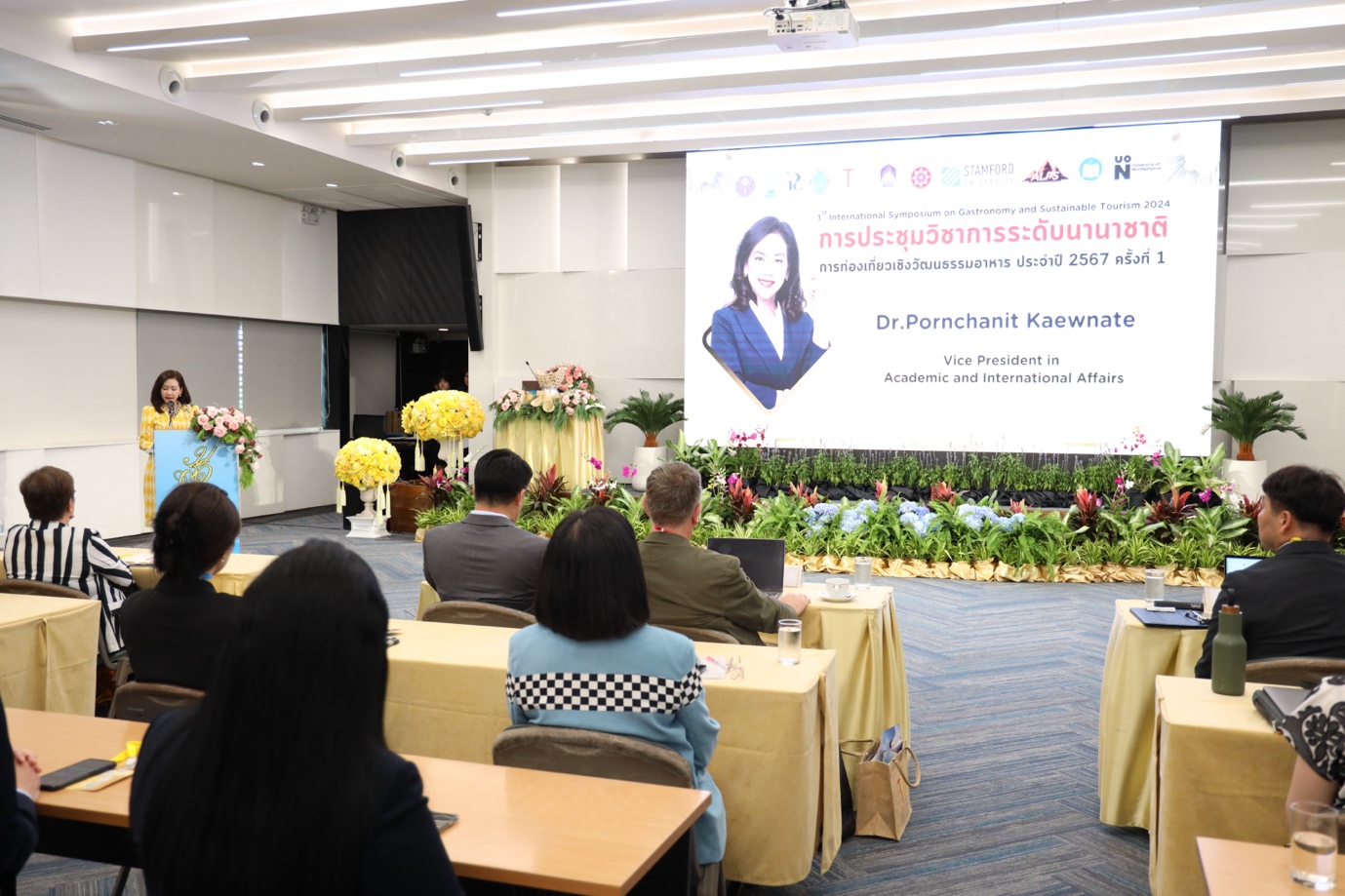
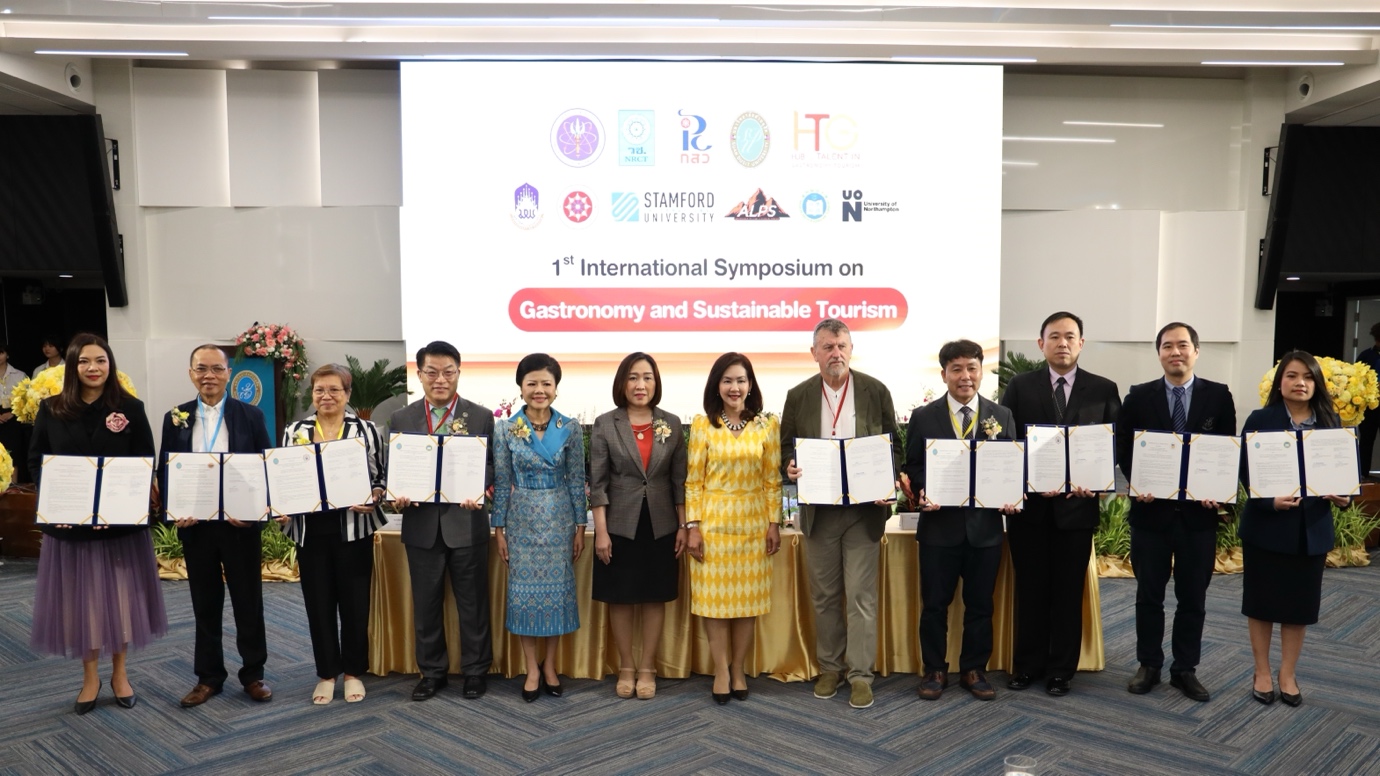
The second case is SDU’s leadership in organizing the 1st International Symposium on Gastronomy and Sustainable Tourism, held from 24–25 August 2024 at the Graduate School Building, Suan Dusit University, Bangkok. The event was organized under the Center of Expertise on Gastronomy and Sustainable Tourism project and in collaboration with the National Research Council of Thailand (NRCT) and several international partner universities, including the University of Canterbury (New Zealand), Macau University of Science and Technology (China), University of Saint Anthony (Philippines), University of Nueva Caceres (Philippines), and Kyungsung University (Republic of Korea).
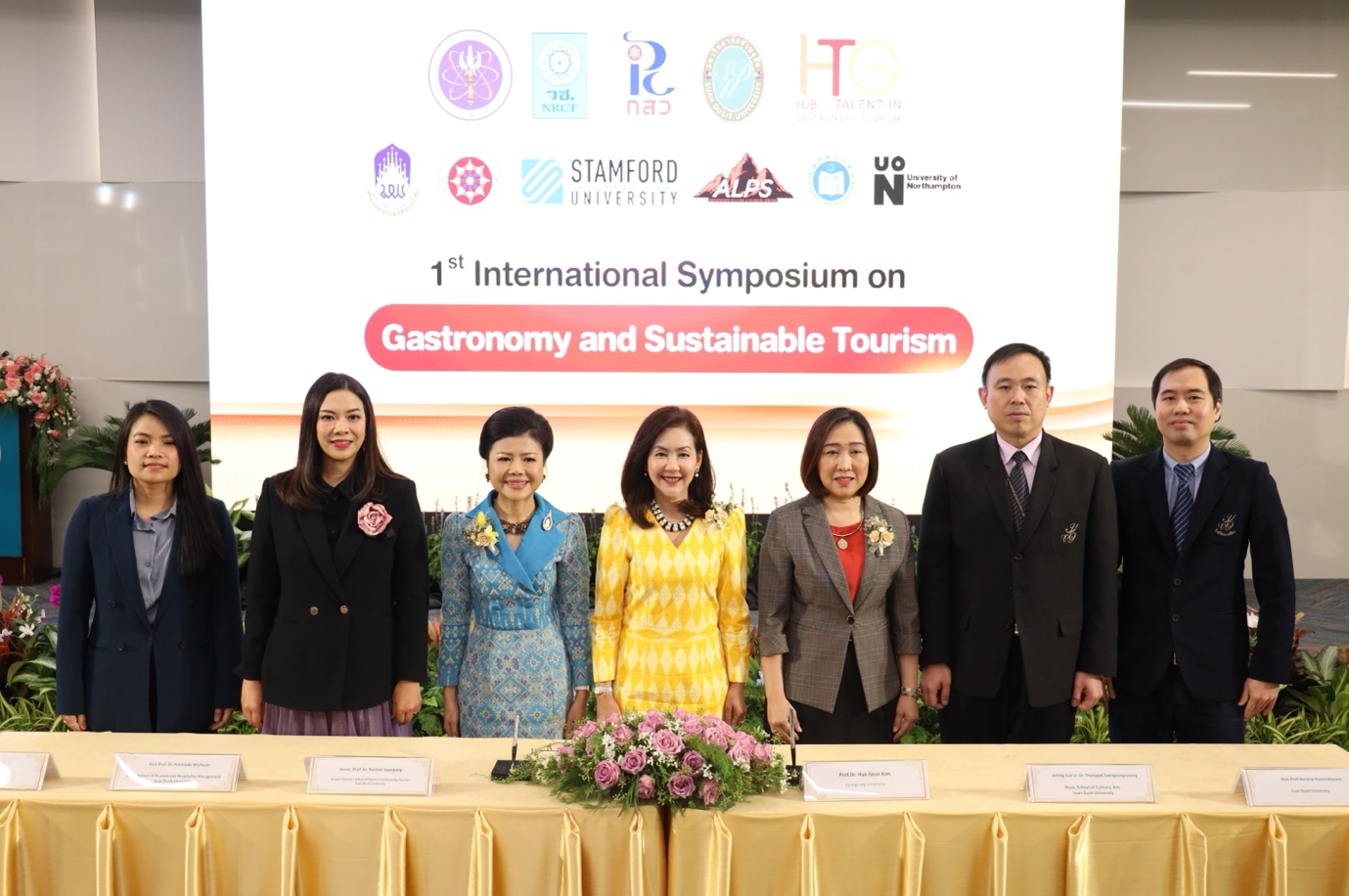
The symposium served as a global cross-sectoral platform for dialogue on the themes of gastronomy, sustainability, innovation, and cultural tourism. It featured keynote lectures and discussions by leading scholars and policy experts such as Professor Colin Michael Hall (University of Canterbury, New Zealand), Professor Timothy Lee (Macau University of Science and Technology, China), and Professor Thetchai Choibamrung (National Institute of Development Administration, Thailand). The event also included the signing of Memoranda of Understanding (MOUs) on academic and research cooperation for sustainability, emphasizing long-term collaboration in knowledge creation and policy innovation.
Moreover, the symposium hosted workshops on Sustainable Tourism, IT & AI in Tourism Studies, and Gastronomy Innovation for Sustainable Development, providing opportunities for researchers, policymakers, and private sector stakeholders to exchange insights on sustainable tourism and innovation policy. The event attracted over 150 participants from Thailand and abroad, representing government bodies, academia, and international organizations—clearly exemplifying multi-sectoral engagement and policy-oriented knowledge exchange in line with SDG 8, SDG 12, and SDG 17.
Together, these two examples clearly illustrate SDU’s active involvement in cross-sectoral and international dialogue on sustainable development. The university’s initiatives bring together stakeholders from government, academia, the private sector, and civil society to co-create actionable knowledge and strengthen the implementation of the SDGs at both local and global levels.
All events presented are verifiable through official publications on the university’s website, fulfilling all three assessment components required by THE — existence of dialogue, evidence provided, and public availability. These engagements demonstrate Suan Dusit University’s commitment to acting as a policy-oriented convener that connects sectors, scales, and knowledge systems to advance collaborative governance and inclusive sustainable development, in full alignment with the Times Higher Education (THE) Sustainability Impact Ratings 2026 for SDG 17.2.2 – Cross-sectoral Dialogue about the SDGs.
References
- Suan Dusit University, Suphanburi Campus. (2024). “Workshop on Strategic Planning for the Development of the U-Thong Ancient City and Its Connected Areas as a Special Zone for Sustainable Tourism (2023–2030).”
https://www.dusit.ac.th/home/2024/1298714.html - Suan Dusit University. (2024). “1st International Symposium on Gastronomy and Sustainable Tourism.”
https://www.dusit.ac.th/home/2024/1320853.html
